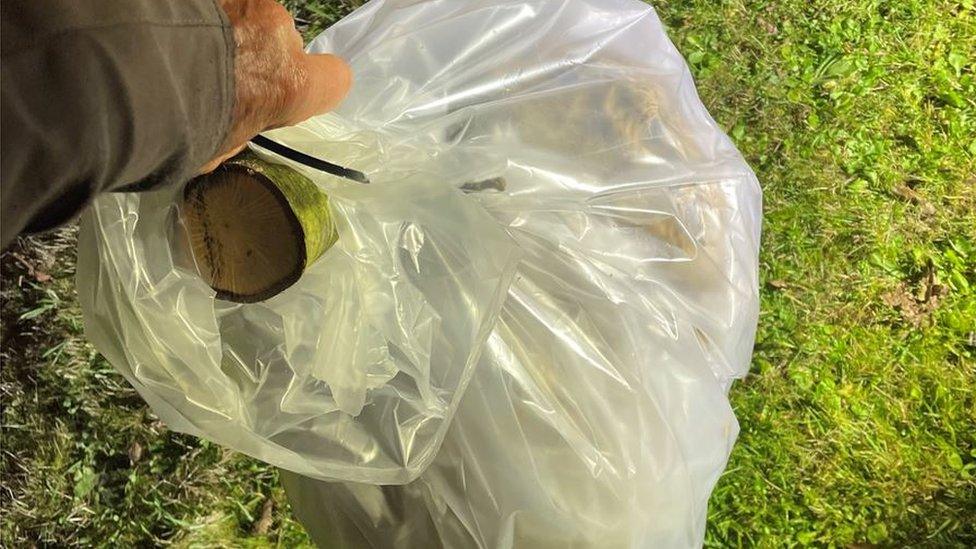Bumblebees take Asian hornets to ground in fights
- Published
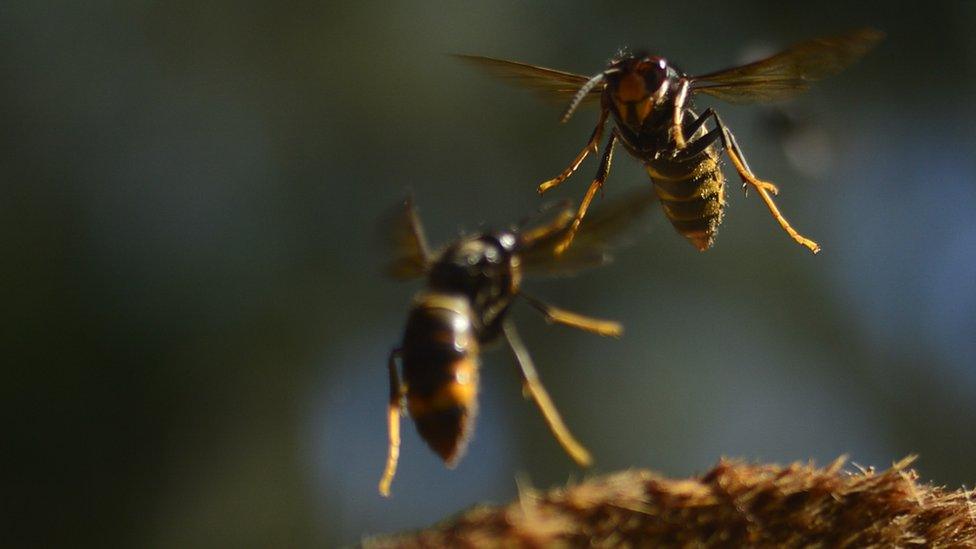
Asian hornets are threatening to get a foothold in the UK
Bumblebees have developed a remarkably successful method for fighting off Asian hornets, new research shows.
Scientists at the University of Exeter found buff-tailed bumblebees drop to the ground when attacked - taking the hornets down with them.
This either causes the hornet to lose its grip, or the bee raises its sting and tussles until the hornet gives up.
Researchers witnessed more than 120 such attacks and found the bumblebees fought off the hornets every time.
"While honey bees are often unable to escape the clutches of Asian hornets once grappled in the air, the bumblebees' defensive response of dropping to the ground appears to be more successful," said Thomas O'Shea-Wheller, of the Environment and Sustainability Institute on Exeter's Penryn Campus in Cornwall.
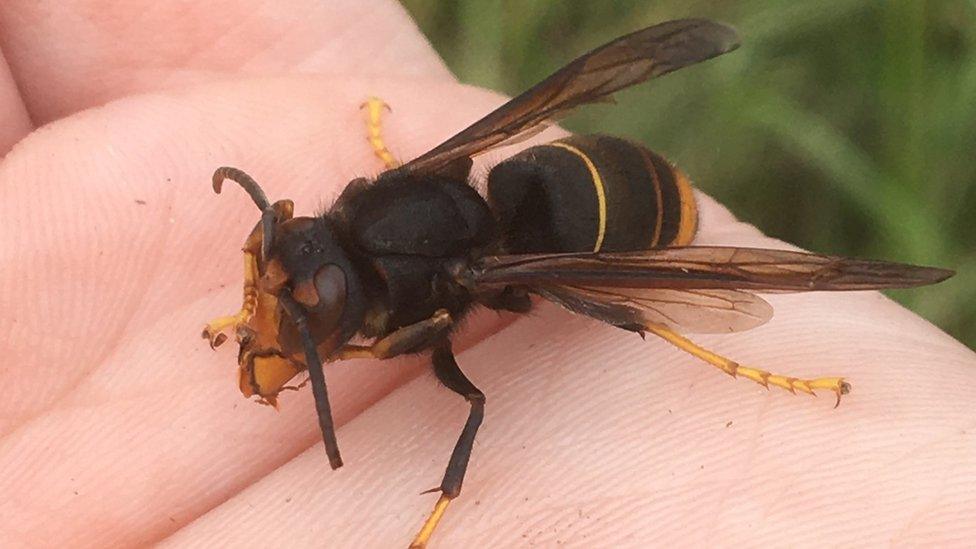
Asian hornets were unsuccessful in their fights with bumblebees
Despite the bees' fighting prowess, researchers found bumblebee colonies had reduced growth rates in areas with high numbers of Asian hornets - suggesting the hornets still had a negative impact, even if their attacks at colony entrances usually failed.
Record sightings of Asian hornets are raising fears of catastrophic consequences for the UK's bee populations for years to come.
The invasive hornets are wreaking havoc in mainland Europe and threaten to get a foothold in the UK, with nests found in East Sussex, Kent, Devon and Dorset.
'Surprising difference'
Mr O'Shea-Wheller said: "Asian hornets prey on a wide range of insects, including honey bees, but little is known about their impact on other pollinators.
"With honey bees, the hornets do something called 'hawking' - hovering outside the bees' nest and attacking returning foragers as they fly past.
"We recorded hornets doing the same thing to bumblebees but with the surprising difference that, in our observations, they were entirely unsuccessful."
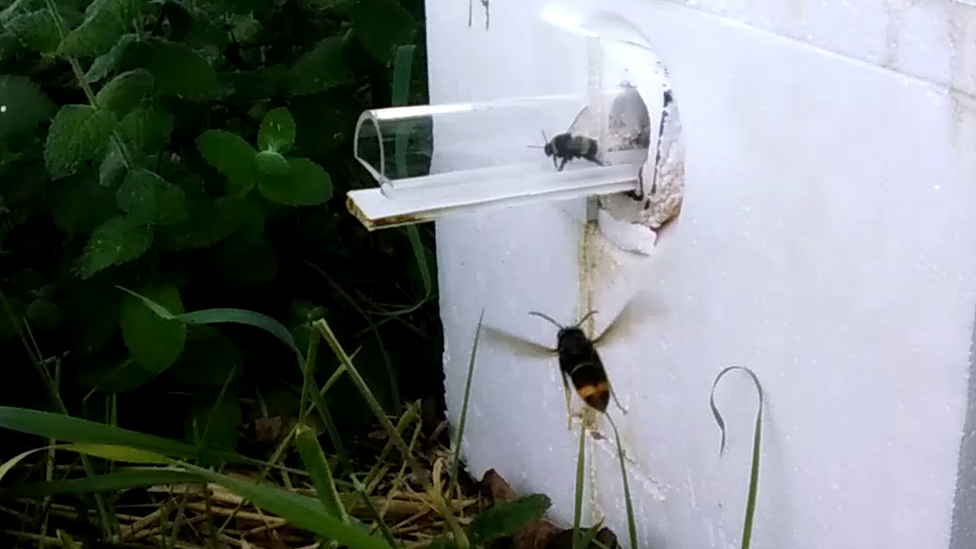
An Asian hornet outside the bumblebee colony
In the study, published in the journal Communications Biology, commercially reared bumblebee colonies were placed at 12 locations across the province of Pontevedra, Spain, with varying local Asian hornet densities.
Mr O'Shea-Wheller said it was unclear why colonies in areas with higher Asian hornet densities grew more slowly.
'Persistent predators'
Commenting on the hornets' low success rate during attacks, Mr O'Shea-Wheller said: "I have seen hornets attack bumblebees of all sizes, including some that are larger than them.
"They are very persistent and generalist predators, so these attacks may still be worthwhile despite the high failure rate, as long as they sometimes get a kill."
In addition to the University of Exeter, the research team included scientists from the University of Vigo and the University of Santiago de Compostela.
The study was funded by the Biotechnology and Biological Sciences Research Council (BBSRC) and the European Regional Development Fund (ERDF).

Follow BBC News South West on Twitter, external, Facebook, external and Instagram, external. Send your story ideas to spotlight@bbc.co.uk.
Related topics
- Published4 September 2023
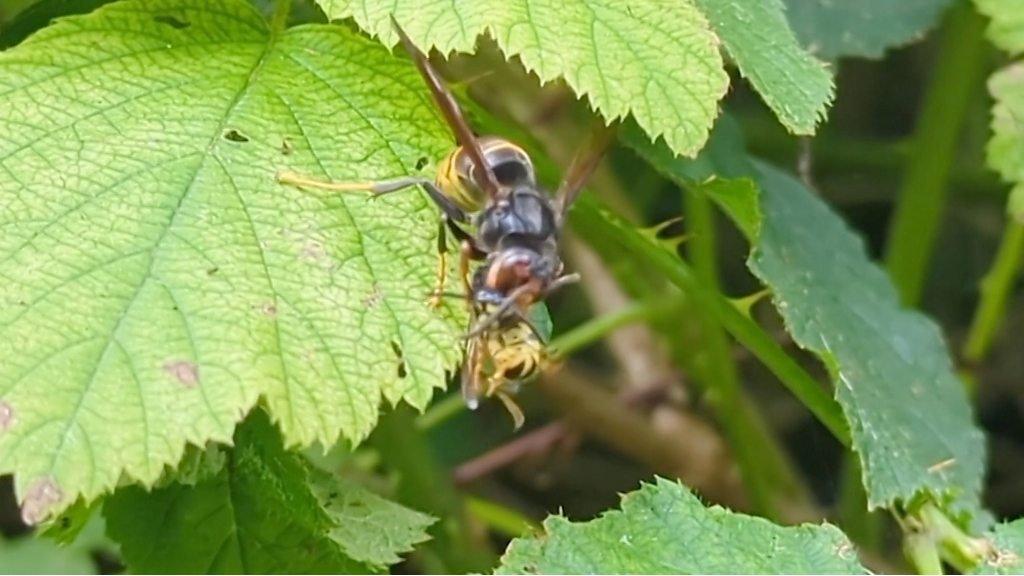
- Published20 September 2023
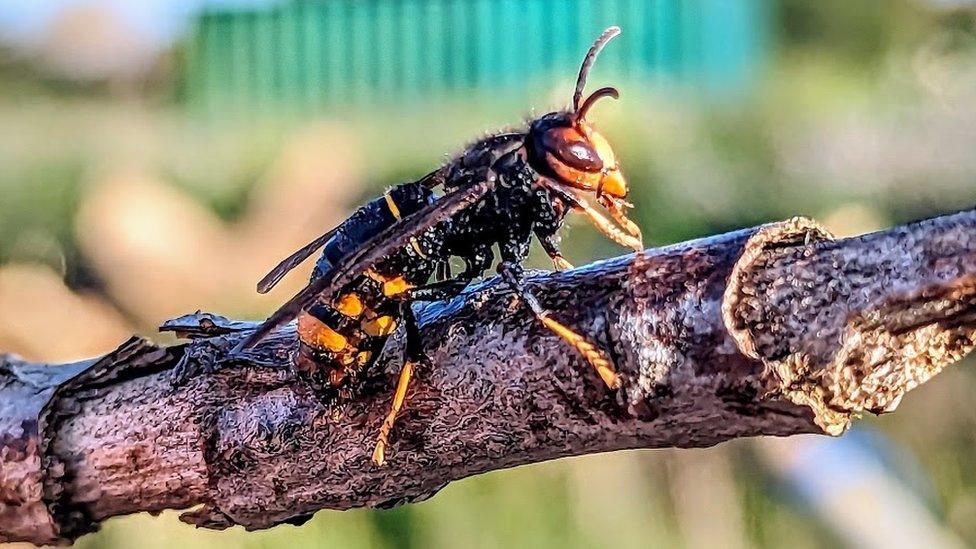
- Published8 September 2023
